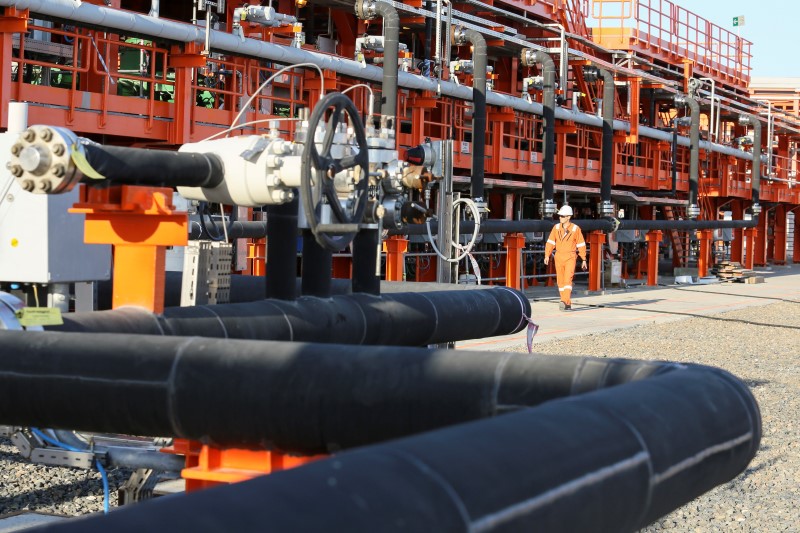Investing.com – Crude futures settled higher on Friday, despite fears that Hurricane Harvey could disrupt refinery activity, reducing demand for crude oil.
On the New York Mercantile Exchange crude futures for October delivery rose 44 cents to settle at $47.87 a barrel, while on London's Intercontinental Exchange, Brent added 37 cents to trade at $52.41 a barrel.
Government weather agencies said Harvey became a Category 2 storm as it crossed the Gulf of Mexico with winds of 110 mph (175 kph), 145 miles (235 km) off Port O'Connor, Texas.
Analysts expect the main hit to the industry would probably be caused by flooding and power cuts, leading to disruption at refineries, reducing demand for crude, the primary input at refineries.
“Demand numbers might suffer, and some [crude-oil] inventories might increase while refinery production also dips.” said Richard Hastings, macro strategist at Seaport Global Securities.
Two refineries in Corpus Christi, Texas - Flint Hills Resources' 296,470 barrels per day plant and Citgo Petroleum's 157,000 bpd plant - were shutting down operations in preparation of the storm.
More than 45% of the nation’s petroleum refining capacity is located along the Gulf Coast, as well as 51% of U.S. natural-gas, processing plant capacity, according to the EIA.
The rise in oil prices on Friday failed to offset losses sustained over the past few days, as crude futures slipped to their fourth-straight weekly loss.
Falling crude prices have weighed on U.S. drilling activity over recent weeks, as data showed the number of U.S. oil rigs continued to drop.
Oilfield services firm Baker Hughes said its weekly count of oil rigs operating in the United States fell by four to a total of 759 this week.
The weekly rig count is an important barometer for the drilling industry and serves as a proxy for oil production and oil services demand.
